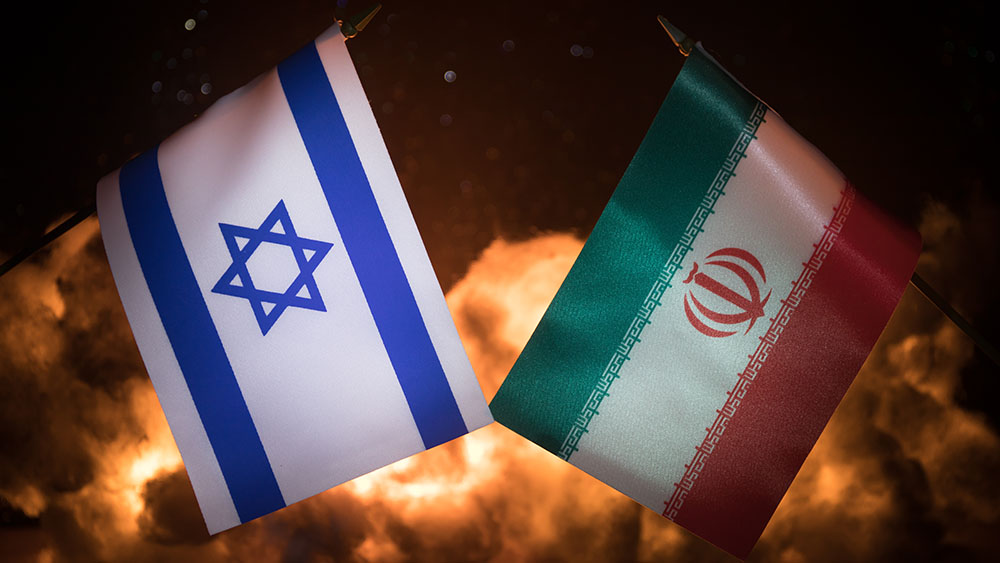Trump mulls direct U.S. military intervention in Israel-Iran conflict amid escalating tensions
- The Israel-Iran conflict is intensifying, with U.S. President Donald Trump considering direct U.S. military assistance to Israel, which could draw America into another major Middle Eastern war. Iranian officials have warned of immediate strikes on U.S. bases in the region if such intervention occurs.
- The Pentagon is positioning military assets in anticipation of potential conflict, including deploying refueling aircraft to Europe and moving the USS Nimitz-led aircraft carrier group to the Middle East. Iran has readied missiles and military hardware for attacks on U.S. bases and is expected to have the Houthi militia in Yemen target ships in the Red Sea.
- Despite the military buildup, the Trump administration is engaging in back-channel communications with Iran, exploring the possibility of a meeting between Iranian Foreign Minister Abbas Araghchi and U.S. envoy Steve Witkoff. However, the White House’s ambiguity about the meeting has fueled skepticism in Tehran.
- Israeli Prime Minister Benjamin Netanyahu and his defense establishment anticipate a U.S. strike on Iran’s Fordo facility. Israel has already conducted strikes on Iranian targets, while Iran has reduced the intensity of its bombardment of Israel to avoid provoking U.S. involvement.
- Trump has emphasized that he will not allow Iran to develop nuclear weapons, hinting at the possibility of regime change. Meanwhile, Iran insists on its right to nuclear enrichment and maintains it has no intention of building a nuclear weapon. The U.S. Constitution grants Congress the power to initiate war, raising questions about whether Trump will seek approval or act unilaterally.
As the Israel-Iran conflict intensifies, President Donald Trump is reportedly considering direct U.S. military assistance to Israel, a move that could drag America into another major Middle Eastern war.
Iranian officials have responded with a stark warning that any U.S. intervention will prompt immediate strikes on American bases in the region, according to intelligence reports reviewed by U.S. officials.
The Pentagon has already begun positioning military assets in anticipation of potential conflict. Approximately three dozen refueling aircraft have been deployed to Europe, capable of supporting fighter jets guarding U.S. bases or extending the range of bombers targeting Iranian nuclear facilities. The USS Nimitz-led aircraft carrier group is also en route to the Middle East from the South China Sea, joining the USS Carl Vinson strike group already stationed there. (Related: Sources: US will enter Israel’s war with Iran.)
Iran has not been idle. Officials say Tehran has readied missiles and other military hardware for attacks on U.S. bases in the region. The Iranian-backed Houthi militia in Yemen is expected to resume strikes on ships in the Red Sea if the U.S. joins the Israeli campaign. Pro-Iranian militias in Iraq and Syria are also likely to target U.S. bases in those countries.
Amid the military buildup, the Trump administration has engaged in back-channel communications with Iran, exploring the possibility of a meeting between Iranian Foreign Minister Abbas Araghchi and U.S. envoy Steve Witkoff, according to Axios. The outlet cited four sources briefed on the issue, suggesting that the U.S. is attempting to balance its military posturing with diplomatic efforts.
However, the White House has indicated that any meeting would depend on the situation in Washington upon Trump’s return. This ambiguity has fueled skepticism in Tehran, where officials view U.S. diplomatic overtures with suspicion, seeing them as potential ploys to set up a surprise attack.
Netanyahu and Israel anticipate U.S. strike on Iran’s Fordo facility
Israeli Prime Minister Benjamin Netanyahu and his defense establishment reportedly believe that Trump is likely to enter the war soon to strike Iran’s underground enrichment facility at Fordo. The Israeli military has already conducted strikes on Iranian targets, including the state-run television network IRIB and a senior Iranian general.
An Arab diplomat with deep contacts in Iran told Axios that Tehran is acutely aware of the U.S. red line: “The Iranians are very careful so far not to do anything that can push the U.S. to get involved.”
This caution was evident in Iran’s decision to reduce the intensity of its bombardment of Israel after consecutive nights of deadly strikes.
Trump has repeatedly emphasized that he will not allow Iran to develop nuclear weapons, a stance that has fueled speculation about U.S. intentions. The president has also hinted at the possibility of regime change, suggesting that the U.S. could push for “unconditional surrender” from Iran.
However, Iran’s position on nuclear enrichment remains firm. The country views it as a sovereign right and has consistently rejected any outright ban. Iran has been under a religious edict, or “fatwa,” prohibiting the development of weapons of mass destruction and it has repeatedly assured the international community that it has no intention of building a nuclear weapon. This assurance was validated by U.S. intelligence as recently as March.
In conclusion, the Israel-Iran conflict has reached a critical juncture, with the potential for U.S. military involvement looming large. The outcome will depend on a complex interplay of military, diplomatic and political factors, with profound implications for the future of the Middle East and U.S. foreign policy.
Watch the video below that talks about Trump’s foreign policy and the Iran war.
This video is from the Brighteon Highlights channel on Brighteon.com.
More related stories:
Israel’s “self defense” argument implodes after striking Iran and killing at least 60 civilians, including 20 children.
Israel launches devastating strikes on Iran, targeting nuclear sites and killing top commanders.
Israel-Iran war threatens oil prices, with $10 per gallon gas possible if war escalates in the Persian Gulf.
Sources include:
ZeroHedge.com
NYTimes.com
Axios.com
Brighteon.com
Read full article here


